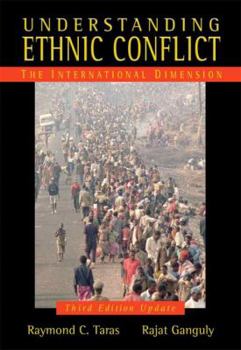Understanding Ethnic Conflict: The International Dimension
Select Format
Select Condition 
Book Overview
Additions to the second edition include discussion of several recent conflicts. Taras (Tulane U.) and Ganguly (U. of East Anglia) define the concepts behind current theories on nations and ethnicity... This description may be from another edition of this product.
Format:Paperback
Language:English
ISBN:0205586007
ISBN13:9780205586004
Release Date:August 2007
Publisher:Longman Publishing Group
Length:319 Pages
Weight:1.07 lbs.
Dimensions:0.7" x 6.4" x 9.2"
Customer Reviews
1 rating
Understanding Ethnic Conflict
Published by Thriftbooks.com User , 20 years ago
In "Understanding Ethnic Conflict", Taras and Ganguly talked about the cost of ethnic conflicts in the world. He emphasized on four major points: the cause of ethnic conflict, how does the international organizations react to it, why some ethnic conflicts become internationalized, and what can be done about the conflicts. The authors tended to give different answers accordingly to different conflicts. They claimed that not all conflicts are similar and not all conflicts can be applied to just single theory. In the book, they laid out different causes of each conflict. For example, the cause of conflict in Chechnya was from the history of suppression done by Russians to the Chechnya people. The conflict in Quebec is due to the differences in language barriers and cultural differences. As for conflict in Sri Lanka, the Sinhalese, who are the rulers, feared of losing power so they organized the nationalism idea. Taras and Ganguly also emphasized that one conflict drew international attention while others do not. For example, the conflict in Chechnya does not draw international attention because there are no interests for other states to risk being involved. But the Yugoslavia conflict drew attentions from international community because the two sides involved different civilizations. The writers also emphasized how important the third parties are to solving the ethnic conflict. The international organization such as the United Nations, major powers, regional powers, and international governmental organizations should be involved in settling disputes. They also criticized each organization such as the weakness of the United Nations for not having its own military.





